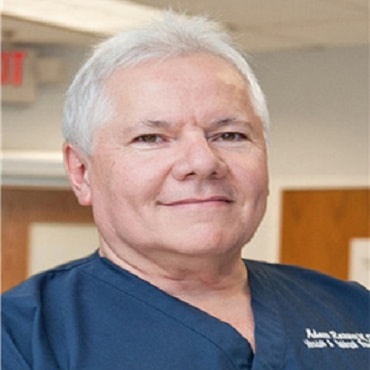Scientific Program

Adam Ramsey
Title: Hormone Therapy in Urogynecology
Biography:
Adam Ramsey is Board Certified with the American Board of OBGYN. He is a Fellow of the American College of OBGYN, a Member of the Royal New Zealand College of OBGYN / Australian College of OBGYN, a Diplomate of OBGYN from Otago University, Dunedin, New Zealand and a Diplomate of Obstetrics with the Royal College of Physicians of Ireland. His deep passion for the field of Urogynecology first began with his Research Fellowship in Urodynamics Studies with patients suffering from Overactive Bladder Syndrome at Massachusetts General Hospital, Harvard Medical School, Boston, Massachusetts, USA in 1983. He is affiliated with the American Urogynecological Society (AUGS), The International Continence Society (ICS), and many other educational bodies. His teaching experience has expanded from his work as a Clinical Tutor from Canberra, Australia to teaching medical students at Sydney University, Australia, teaching the curriculum course of OBGYN and Urogynecology to Medical students at Midwestern University School of Medicine, Downers Grove, Illinois, USA and as an Assistant Professor in the Department of OBGYN at the North Chicago School of Medicine, Rosalind Franklin University, Chicago, Illinois, USA. Currently, He speaks professionally, representing diverse medical industries and presenting in many conferences and clinical meetings around the world.
Abstract
Urogenital embryonic development is so closely that both of the genital and lower urinary systems are hormonally dependent. Aging and hormonal deficiency will affect both parts equally, and disease and physiological as well as pathological disorders are hormonally influenced. Screening, investigating, and management of urogynecological/lower urinary tract disorders must take the hormonal influence in consideration as neither set of systems can be viewed in isolation. Many medical professionals make the mistake of only thinking of estrogen when talking about hormonal influences and therapy. Several hormones affect both urological and genital systems equally. The hormones include Estrogen, Progesterone, Testosterone, DHEA, Cortisol, Thyroid, Pregnenolone, and Melatonin. These hormones and their influences on the urogenital systems will be discussed. Clear evidence exists to support that recurrent urinary tract infection, urinary frequency, urinary incontinence, urgency, nocturia, as well as dysuria may influence hormonal imbalance as a precursor to these symptoms. This presentation will explore the causative relationship and the value of this enormous therapeutic benefit in the field of urogynecology, both in relation of dysfunctions of the lower urinary tract, and in the female genital organ prolapse.
- Gynecology, Obstetrics and Their Advancements
- Gynecological Endocrinology
- Urogynecology
- Gynecological Oncology
- Midwifery and Women Health
- Reproductive Medicine
- Infertility
- ART (Assisted Reproductive Technology)
- Sexual and Reproductive Health
- Gynecological Surgery
- Menopause
- Maternal Fetal Medicine

